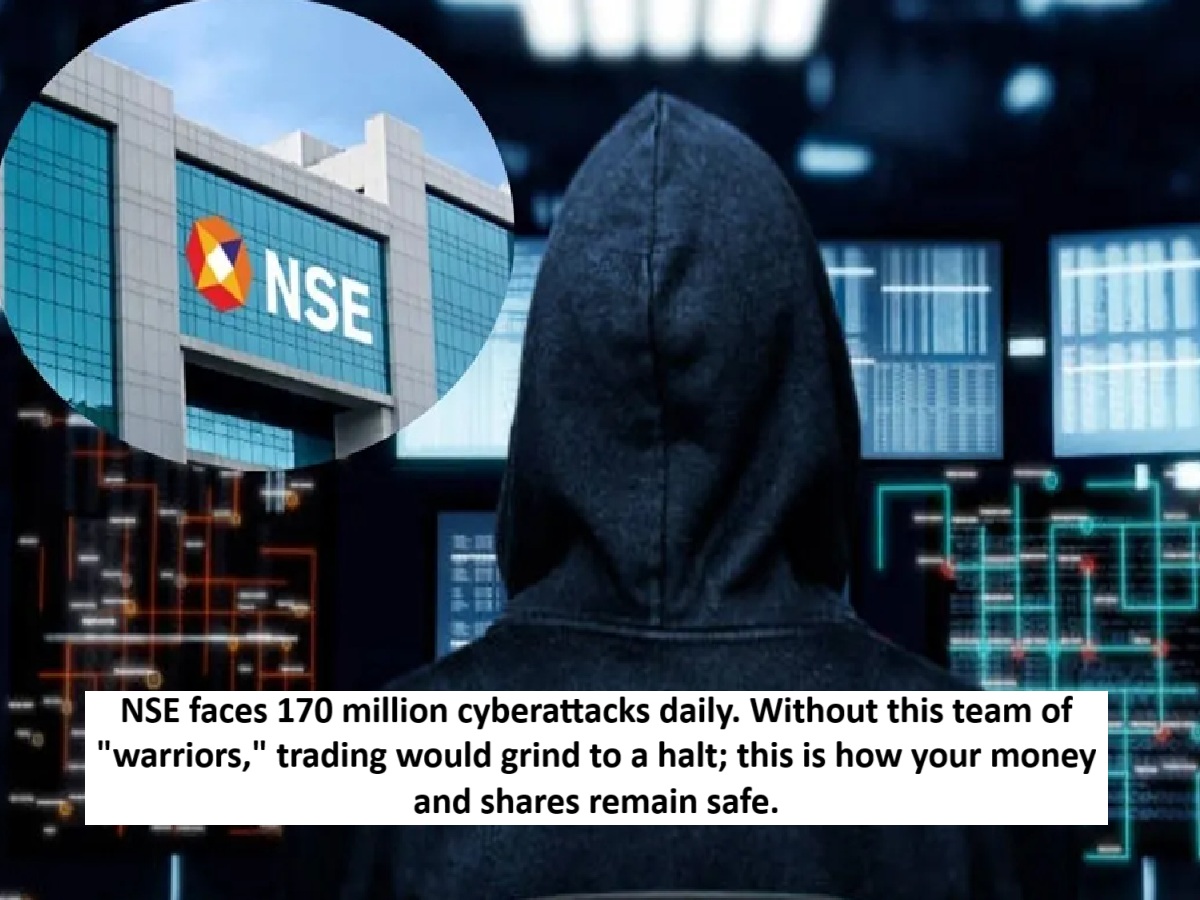
News Topical, Digital Desk : The National Stock Exchange (NSE) faces approximately 170 million cyber attacks daily. To ensure uninterrupted trading, the exchange requires a dedicated team of 'cyber warriors' working round the clock.
The NSE faced the highest number of cyber attacks in a single day, at 400 million, during ' Operation Sindoor ', which was designed as a DDoS simulation. However, the cyber attackers were unable to cause any damage due to the coordinated efforts of personnel, machines and advanced technologies.
Advanced software protects against
According to a senior NSE official, the exchange faces millions of cyber attacks every day. However, our technical teams, systems, and technology counter these attacks 24/7 using specialized software.
He added that the number of cyber attacks ranges between 150 million and 170 million per day, making the task extremely challenging for the teams and systems. The technical teams at both cybersecurity centers are constantly active and equipped with advanced software to neutralize and prevent large-scale attacks on the financial market infrastructure.
According to the official, a robust cybersecurity infrastructure, consisting of technically skilled personnel, machines, and technology, ensures the safe operation of NSE.
Pop-ups and alerts
NSE has implemented robust internal cybersecurity measures for its operations and also offers a cybersecurity basic training program through the NSE Academy. According to officials, trading members are required to undergo regular cybersecurity and cyber-combative capability audits, the results of which are submitted to the exchange.
The security system includes strict protocols to protect against email, external data, pen drives, and distributed denial of service (DDoS) attacks. They further stated that pop-ups and alerts are immediately issued upon detection of any suspicious activity through these channels.
They explained that a DDoS attack causes a surge of traffic from multiple sources on the server, causing it to crash or become unavailable to legitimate users.
Vulnerability and penetration testing is mandatory
This poses a serious threat to industries dependent on seamless operations like the stock market. To strengthen security, NSE has made Vulnerability and Penetration Testing (VAPT) mandatory for all trading members and employees to ensure the integrity of its systems.
A group of journalists from Jammu and Kashmir visited NSE on Saturday and inspected its management facilities, cyber security centers, and backup setup. Top officials shared details of an incident that occurred during 'Operation Sindoor'. Officials said that in response to the heightened security threat during that period, NSE took a conscious decision to temporarily restrict access to its website for foreign users as a precautionary measure.
NSE has a durable, self-activating backup system
NSE leadership stated that in the event of any breach, not only the exchange's systems but everything connected to it would be affected. Officials further stated that increasing global interconnectedness and system complexity have made the risk of large-scale cyberattacks even more relevant, posing a serious threat to the stability of financial markets.
They stated that the potential for large-scale cyberattacks on financial market infrastructure at very low cost remains a major global risk. NSE has a durable, self-activating backup system that can be operated remotely from its headquarters in Chennai through a formal digital process and mandatory approvals.
The system is quite robust
"From the trading system to the backup setup, this system is largely self-contained. It can automatically correct faults or errors with minimal human intervention. If a problem arises here, a parallel backup setup in Chennai is activated after the necessary procedures," an official said, adding that such a situation has not yet arisen.
--Advertisement--

 Share
Share



